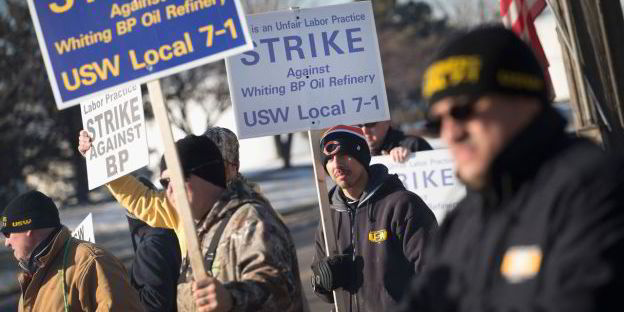In a statement Shell, which is representing the oil industry’s interest during the negotiations, confirmed that a deal was not reached when the two sides spoke yesterday but said talks will continue.
“Shell and USW held discussions today and agreed to resume talks next week,” it said Wednesday evening.
“While we continue running our business, we look forward to reaching a mutually satisfactory agreement with the USW.”
According to Lynne Hancock, a USW spokeswoman, the union representatives intend to meet with Shell in Houston on Monday.
In response to requests for an update about what was discussed during the latest round of talks Hancock issued a statement in which she said topics included safety concerns, overtime, staffing and operations.
"We further discussed our facility-maintenance concerns and the assignment of daily maintenance work to the bargaining unit and offered specific proposals on both those issues," Hancock continued.
As we reported, Shell and USW are in the process of hammering out a three-year labour contract that will impact roughly 30,000 workers at 230 facilities. The total includes 65 refineries.
In a recent briefing Michael Webber, an analyst at Wells Fargo Securities, reminded clients that nearly 7,000 employees from 15 different refineries are on strike.
The forecaster also pointed out that the first wave, which began on 1 February 2015, only impacted nine plants.
“The strikes now include more than 6,500 workers at 15 refineries, up from 3,800 workers at nine refineries,” he told investors in a weekly alert.
“Were US refineries forced to halt crude processing, we would expect a positive reaction for both crude and product tankers (via vessel dislocation, delays, and floating storage).”



